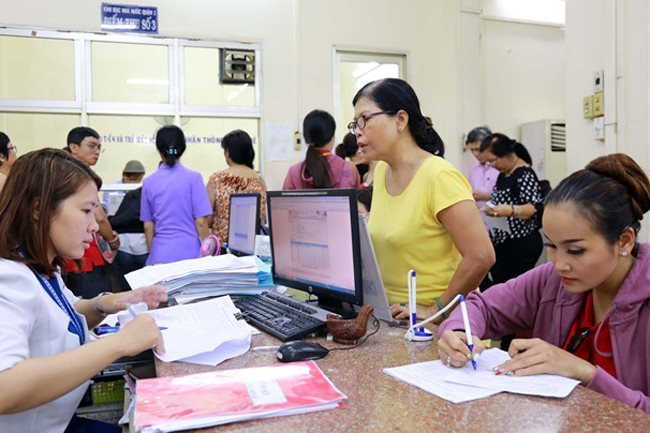 |
| Residents conduct procedures at the tax office of District 1 in HCMC. The tax department is finding it difficult to collect taxes from individuals receiving payments from tech giants such as Google and Facebook |
Held by a group of National Assembly delegates in HCMC, the workshop was aimed at canvassing the opinions of agencies on revisions to the draft Law on Tax Administration, reported Thanh Nien newspaper.
Binh said that tax authorities are keen on ecommerce applications, especially cross-border transactions. Ride-hailing services such as Grab and Uber as well as online hotel booking services such as Agoda.com and Booking.com are becoming more popular, compared with four to five years ago.
However, according to Binh, tax agencies find it challenging to tax cross-border trading services.
For example, clients book their rooms on the Agoda platform and make online payments using their bank cards to Agoda. Then, Agoda pays a certain amount of money to the hotels in the country.
Hotel owners claimed they receive money from Agoda rather than spend money, so they cannot deduct taxes on behalf of the platform.
The taxman has taken steps to collect the personal information of individuals conducting transactions with foreign companies.
In 2018, tax authorities sent written requests to commercial banks, asking them to provide the details of transactions between local residents and Google and Facebook.
Officials later found that many individuals had received sizeable incomes from these tech giants and asked them to declare their taxes.
However, “not all banks, in reality, provide their clients’ information to us. Some State-owned commercial banks have refused, citing the reason of confidential information,” he said.
He added that without mandatory sanctions, there would be no information available to track unpaid taxes. A certain bank even requires the taxman to provide the names and ID numbers of their clients who conduct transactions with foreign organizations such as Google and Facebook before it will offer any information.
Meanwhile, tax agencies need lists of individuals conducting these bank transactions for the purpose of tax administration, according to the official.
He said the draft law references the coordination among agencies. “We are carrying out e-governance initiatives, so departments and agencies need to establish connections. Otherwise, it will be very tough to manage taxes,” he said.
Regarding the tasks and powers of commercial banks in tax administration, having taken the relevant feedback into account, the law-drafting board has rewritten the previous draft, changing “periodically providing account details of taxpayers to the taxman” to “providing information on account numbers according to taxpayers’ codes when opening their accounts.”
However, commercial banks are still being asked to provide the details of taxpayers’ transactions and their account balances within 10 working days after the date of receiving the taxman’s request. SGT